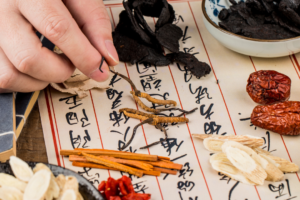The Difference Between Western and Chinese Medicine Schools
In the world of healthcare education, Western and Chinese medicine schools offer distinct approaches rooted in different philosophies, clinical techniques, and perspectives on wellness. As more people seek integrative approaches to healthcare, understanding the differences between these two educational paths can help aspiring practitioners make an informed choice. Here, we explore some core distinctions between Western and Chinese medicine schools, focusing on educational philosophies, curricula, clinical training, and research perspectives.
Educational Philosophy
The foundational philosophies of Western and Chinese medicine schools diverge significantly. Western medicine schools emphasize a biological and anatomical approach, viewing the human body as a collection of systems and focusing on diagnosing and treating diseases at a cellular or molecular level. This approach often emphasizes pathology, pharmacology, and surgical interventions as primary methods of healing.
In contrast, Chinese medicine schools, such as Colorado Chinese Medicine University® (CCMU), center around a holistic philosophy. Rooted in principles like balance, energy flow, and harmony, Chinese medicine views health as the balanced interaction of the body, mind, and environment. This philosophy is reflected in techniques that aim to restore balance within the body, using modalities such as acupuncture, herbal medicine, and Qi-based treatments.
Curriculum and Study Focus
Western medicine schools follow a structured curriculum that focuses on anatomy, physiology, pathology, and pharmacology, with an emphasis on research-based practices and clinical procedures. The study path is rigorous, often including a pre-med undergraduate track, four years of medical school, and several years of residency to ensure mastery of medical sciences and procedures. The primary goal is to equip students with a comprehensive understanding of disease mechanisms and evidence-based treatments.
On the other hand, Chinese medicine schools like CCMU offer a curriculum that integrates foundational knowledge in acupuncture, Chinese herbal medicine, Qi theory, and TCM (Traditional Chinese Medicine) diagnostics. Programs at CCMU, including the Master of Acupuncture (MAc) and Doctor of Acupuncture (DAc), focus on understanding the flow of energy (Qi) and the balance between Yin and Yang. The goal is to train practitioners in holistic healing practices that emphasize treating the root cause of health issues, not just symptoms. Courses on Chinese herbal medicine, patient-centered diagnostic techniques, and holistic therapies are central to TCM education.
Clinical Training
Clinical training in Western medicine is intensive and generally hospital-based, where students gain experience diagnosing and treating patients in a highly controlled environment. Here, the approach is standardized, with a heavy reliance on technology, laboratory tests, and pharmaceuticals. Medical students undergo rotations in specialties such as surgery, pediatrics, and psychiatry to gain a broad understanding of different medical fields.
In Chinese medicine schools, clinical training focuses on hands-on practice in acupuncture, herbal medicine formulation, and traditional diagnostic methods. Students gain experience in TCM clinics, where they treat patients holistically, developing treatment plans that incorporate acupuncture, herbal remedies, and lifestyle advice. Programs like CCMU’s Master of Acupuncture and Chinese Herbal Medicine (MAcCHM) allow students to learn in environments that prioritize holistic and individualized treatment.
Research and Innovation
Research in Western medicine schools often centers around lab-based studies, clinical trials, and technological advancements aimed at disease management. Western medical research aims to identify and cure specific diseases, focusing on data-driven methodologies and innovations in drugs, medical devices, and surgical techniques.
In contrast, Chinese medicine schools approach research through the lens of natural balance, energy flow, and patient-centered outcomes. At institutions like CCMU, students can engage in research focused on the effectiveness of holistic therapies and traditional practices. Advanced programs, such as CCMU’s Doctor of Acupuncture and Oriental Medicine (DAOM), offer in-depth study and research opportunities that explore traditional Chinese practices, Qi-based therapies, and integration with Western medicine.
Conclusion: Finding Your Path in Healthcare
Choosing between a Western and Chinese medicine school depends on your career goals and perspective on healthcare. While Western medicine focuses on biological and technological approaches, Chinese medicine offers a holistic perspective that emphasizes energy, balance, and individualized care. At Colorado Chinese Medicine University®, we provide a comprehensive path for those passionate about holistic health, offering programs like the Master of Acupuncture (MAc), Doctor of Acupuncture (DAc), Master of Acupuncture and Chinese Herbal Medicine (MAcCHM), and the advanced Doctor of Acupuncture and Oriental Medicine (DAOM). Whether you’re drawn to the holistic methods of Chinese medicine or interested in integrative health, CCMU’s programs can support your journey in the evolving field of healthcare.


